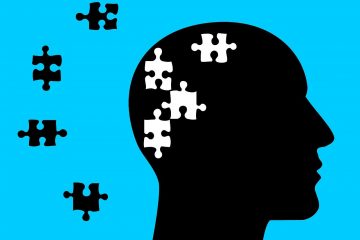So what exactly is Wellness? We hear people talking all the time about the importance of wellness and well-being. So many ‘wells’, but what do they mean?
The World Health Organisation defines wellness
an active process of becoming aware of and making choices toward a healthy and fulfilling life,
a state of complete physical, mental, and social well-being, and not merely the absence of disease or infirmity.
.
If we look at our own lives, how active are we and how aware are we of the choices we make? Do you treat your body as a temple or is it merely something that gets you from A to B as quick as possible?
If we look firstly at becoming aware, we are already on the path towards wellness. How do you become aware you might ask? Well, basically by taking a step back and thinking about the things you do to both your body and mind. How do you feel when you stay up until 4am? Or how do you feel when you eat deep fried/high sugar foods? Initially (YUMMY YUMMY) they might taste great but do you think of the effects these foods are having on your body? Also, it’s good to be aware of the stresses we have in life. If you notice after a stressful conversation with a colleague, friend or family member, how does your body feel? How does your mind feel? Do you feel enriched from your career or do you have little satisfaction in your work? These are just examples but you can see the pattern. When we are aware of what is healthy for us we can then go about putting things in place to ensure that we achieve a fulfilling life.
The University of California states that there are 8 Different Dimensions to Wellness:
Let’s have a look at them below:
1 Emotional Wellness:
Being emotionally well is more than just handling stress. It also involves being attentive to your thoughts, feelings, and behaviors, whether positive or negative. Emotional Wellness implies the ability to be aware of and accept our feelings, rather than deny them, have an optimistic approach to life, and enjoy life despite its occasional disappointments and frustrations.
2 Occupational Wellness
Occupational wellness inspires us to prepare for work in which we will gain personal satisfaction and find enrichment in our life. Your attitude about work is a crucial influence for occupational development. Occupational wellness allows you to explore various career options and encourages you to pursue the opportunities you enjoy the most. This dimension of wellness recognizes the importance of satisfaction, enrichment, and meaning through work.
3 Environmental Wellness
Environmental wellness inspires us to live a lifestyle that is respectful of our surroundings. This realm encourages us to live in harmony with the Earth by taking action to protect it. Environmental well-being promotes interaction with nature and your personal environment. Everyone can have a strong environmental conscious simply by raising their awareness.
4 Physical Wellness
Physical wellness promotes proper care of our bodies for optimal health and functioning. There are many elements of physical wellness that all must be cared for together. Overall physical wellness encourages the balance of physical activity, nutrition, and mental well-being to keep your body in top condition. Obtaining an optimal level of physical wellness allows you to nurture personal responsibility for your own health. As you become conscious of your physical health, you are able to identify elements you are successful in as well as elements you would like to improve.
5 Intellectual Wellness
Intellectual wellness encourages us to engage in creative and mentally-stimulating activities. These activities should expand your knowledge and skills while allowing you to share your knowledge and skills with others. Intellectual wellness can be developed through academics, cultural involvement, community involvement and personal hobbies. As intellectual wellness develops, you are able to develop personal resources that work together with the other realms of wellness in order to achieve a more balanced life.
6 Social Wellness
Social wellness refers to the relationships we have and how we interact with others. Our relationships can offer support during difficult times. Social wellness involves building healthy, nurturing and supportive relationships as well as fostering a genuine connection with those around you. Conscious actions are important in learning how to balance your social life with your academic and professional lives. Social wellness also includes balancing the unique needs of romantic relationships with other parts of your life.
7 Financial Wellness
Financial Wellness involves the process of learning how to successfully manage financial expenses. Money plays a critical role in our lives and not having enough of it impacts health as well as academic performance. Financial stress is repeatedly found to be a common source of stress, anxiety, and fear for college students. Keeping track of expenses, making a budget, and sticking to it are important skills to have in order to be finically responsible and independent. Learning how to maximize your financial wellness now will help you feel prepared to handle potentially stressful financial situations in the future.
8 Spiritual Wellness
Spiritual wellness allows us to be in tune with our spiritual selves. This realm of wellness lets us find meaning in life events and define our individual purpose. Spiritual wellness can be defined through various factors including religious faith, values, ethics, and morals. Regardless of whether you believe in a particular religious faith, there is always something to be learned about how you see yourself in the world.
Looking at the 8 Dimensions of Wellness we can see where Coaching comes in. Those of you who have been coached by me will remember the emphasis and importance I will place on taking your life as a whole entity. We work together to try and create a balance. If you are neglecting one area of your life, you might be experiencing difficulty in the other areas of your life. Through Coaching, we can work together to become aware of the areas in your life that might need a bit more of work. Through this awareness, you can then set action plans to work towards a healthy and fulfilling life.
The result of wellness is well-being. Well-being is the state of being comfortable, healthy, or happy. That sounds like a pretty good state to be in. What do you think?
.



0 Comments